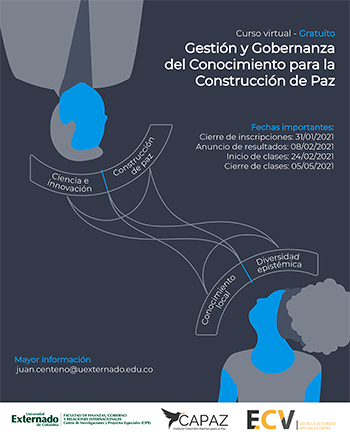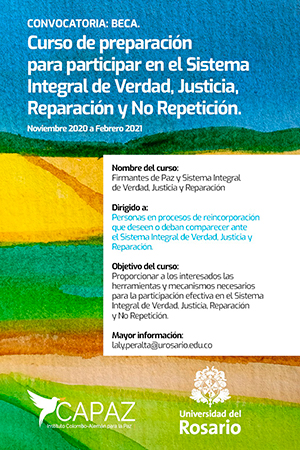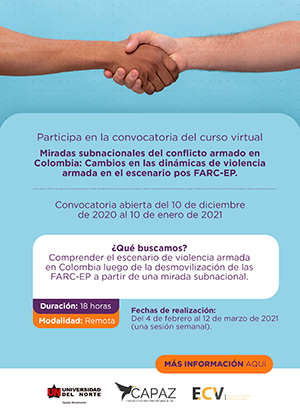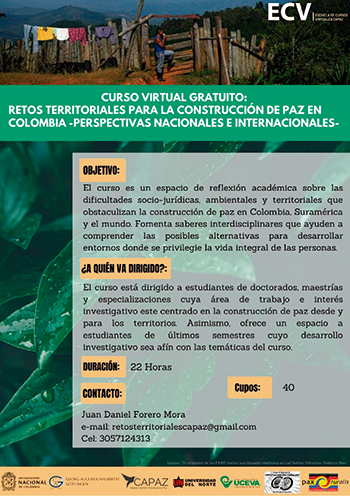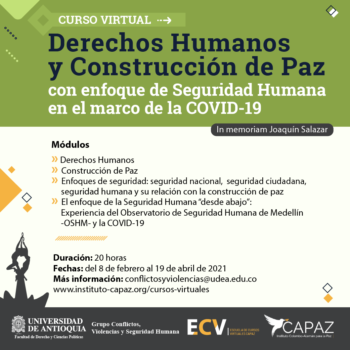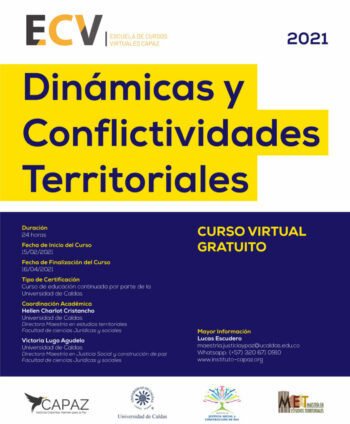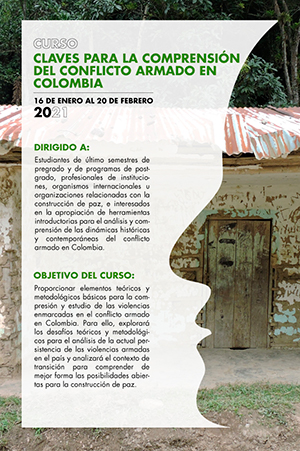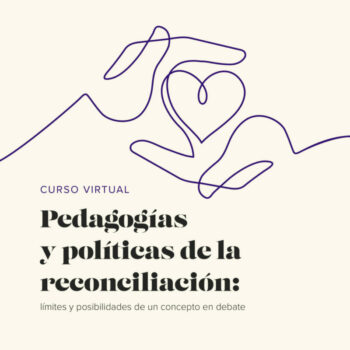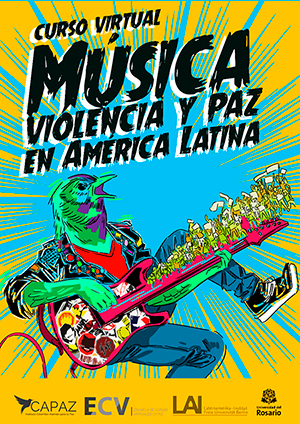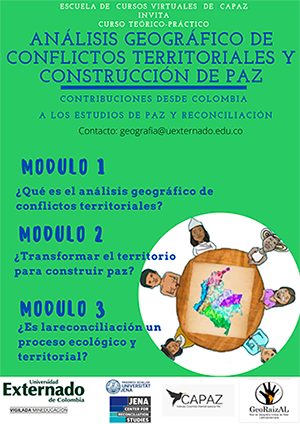The CAPAZ School of Online Courses (Cursos Virtuales de CAPAZ – ECV) was established as a result of the consolidation of the institute’s lines of research and its commitment to expand its academic offerings through the digitalisation of content on the different aspects that comprise peace studies. Based on the joint work of our partner universities, we have managed to design a high quality programme, designed for those with academic and research interests in the subject of peace, as well as citizens who wish to understand the challenges of building a stable and lasting peace.
For this first version of the ECV (2020-2021), we have an offer of 10 online courses covering topics such as: sub-national views of armed conflict, geographical analysis of territorial conflicts, reconciliation pedagogies and policies, music practices, and peacebuilding knowledge management. We hope this offer is of interest to you and that you secure a place on some of our courses.





